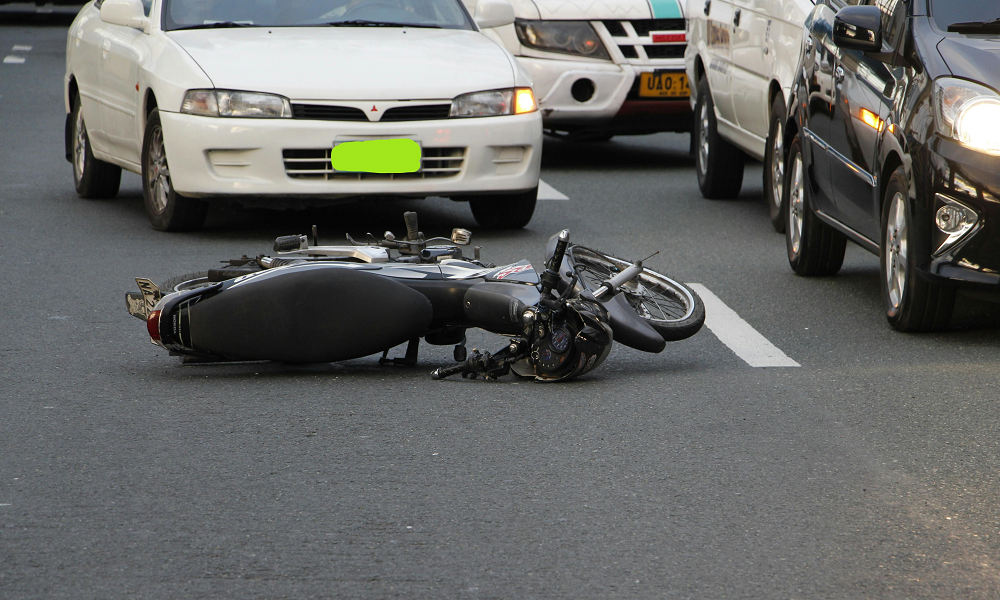Reviews
What to Do Immediately Following a Motorcycle Accident

Motorcycle accidents are among the most perilous and life-altering incidents a person can experience. The vulnerability of motorcyclists on the road, combined with the high speeds often involved, makes these accidents particularly devastating. In Lancaster, California, the unique road conditions, ranging from expansive desert highways to busy city streets, present specific challenges for motorcyclists. Lancaster, with its growing population and proximity to major highways like State Route 14, sees a fair share of motorcycle traffic, making awareness and preparedness crucial for all riders in the area. Consulting an experienced motorcycle accident lawyer can offer a wealth of insights into the legalities of motorcycle laws.
Known for its picturesque landscapes and suburban feel, Lancaster is a city where residents often enjoy the freedom of the open road. However, this freedom can quickly turn dangerous if safety measures are not taken seriously. Understanding what steps to take immediately after a motorcycle accident in Lancaster is essential for protecting your rights and ensuring your well-being. This article provides vital information to help guide you through the critical moments following an accident, with a focus on the specific context of riding in and around Lancaster.
1. Ensure Safety First:
The first priority after a motorcycle accident is ensuring safety. Move yourself and others involved in the accident away from traffic if possible. If you’re unable to move due to injuries or other reasons, turn on hazard lights or use other signaling methods to alert oncoming vehicles.
2. Contact Emergency Services:
Contact the appropriate emergency services – either by calling 911 or the local emergency number – as soon as possible. Describe the accident scene and any visible injuries, and request medical assistance if required. Remain on the line until you receive instructions from emergency operators.
3. Preserve Evidence:
Preserving evidence is crucial for documenting the accident and supporting any claims you may need to make later on. Take photos of all vehicles involved, capturing both close-up shots of damages and wider angles of the scene. Note down details like road conditions, weather conditions, date, time, and any witnesses present at the scene.
4. Exchange Information with Others Involved:
Exchange contact information with all parties involved in the accident, including drivers/operators of other vehicles, passengers, pedestrians (if applicable), and witnesses. Gather their names, phone numbers, addresses, insurance details (if available), vehicle license plate numbers, make/model of their vehicles (if applicable), and any additional relevant information.
5. Seek Medical Attention:
Even if you believe you have no visible injuries or think they are minor at first glance, it’s essential to seek medical attention promptly after a motorcycle accident. Some injuries might not immediately manifest symptoms but could be serious nonetheless. Prompt medical evaluation will help diagnose hidden injuries and ensure a proper record of any harm caused.
6. Report the Accident:
Depending on your location, you may need to report the accident to the appropriate authorities. In general, it’s advisable to file an accident report with law enforcement within a reasonable time frame. Cooperate fully with the reporting officer and provide accurate information while avoiding admitting fault or speculating about details you are unsure about.
7. Inform Insurance Company:
As soon as possible, contact your insurance company to promptly report the accident. Share all relevant details without making assumptions or accepting blame. Provide them with copies of any available documentation, including photos, medical reports, and witness statements as they become available.
8. Consult with Legal Professionals:
Engaging legal professionals who specialize in motorcycle accident cases is vital to protect your rights and navigate potential legal proceedings. Consulting experienced attorneys allows you to understand legal obligations, potential compensation options for damages or injuries sustained, and receive guidance throughout the process.
9. Document Your Injuries and Expenses:
It is crucial to document all injuries and expenses resulting from a motorcycle accident for potential insurance claims or legal proceedings. Keep track of all medical records, bills, receipts for medications, therapy sessions, and other relevant expenses. If possible, take photographs of visible injuries throughout your recovery process.
10. Seek Emotional Support:
Motorcycle accidents can have lasting emotional effects, leading to anxiety, stress, and even post-traumatic stress disorder (PTSD) in some cases. Reach out to friends, family members, or professional counselors who can provide emotional support during this challenging time. Mental health is just as important as physical health in the recovery process.
Conclusion:
Experiencing a motorcycle accident can be difficult and overwhelming. However, following these steps immediately after an incident can help ensure your safety, preserve evidence for future claims, and seek necessary medical attention without delay. Remember to prioritize self-care alongside financial and legal considerations – consult professionals who can offer assistance during this challenging time in order to move forward effectively.

-

 World3 days ago
World3 days agoEthiopian volcano erupts for first time in thousands of years
-

 Legal1 week ago
Legal1 week agoMichigan man JD Vance sentenced to 2 years for threatening Trump and JD Vance
-

 Legal1 week ago
Legal1 week agoWoman in critical condition after being set on fire on Chicago train
-

 World1 week ago
World1 week agoHurricane Melissa registered 252 mph wind gust, breaking global record
-

 Legal6 days ago
Legal6 days agoSuspect in San Diego stabbing shot by authorities after fleeing into Mexico
-

 Legal1 week ago
Legal1 week ago1 dead, 2 injured in shooting at Dallas Walmart parking lot
-

 Health6 days ago
Health6 days agoMarburg virus outbreak in Ethiopia grows to 6 confirmed cases
-

 Legal5 hours ago
Legal5 hours agoUtah Amber Alert: Jessika Francisco abducted by sex offender in Ogden




